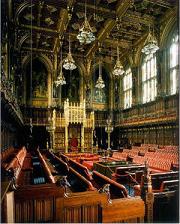 On 4th August, 1914,
On 4th August, 1914, About
What was strange was that the maps issued to the officers bore no resemblance at all to the surroundings. Instead of a flat beach and gently undulating terrain beyond, they were facing shrub-covered rocky formations and cliffs that nearly ran into the sea.
 Before long, it became clear what had happened : the force had not been put ashore as intended, but in a small bay
Before long, it became clear what had happened : the force had not been put ashore as intended, but in a small bay
They immediately threw off their packs and stormed the heights closest to the beach. Because the boats had landed in complete disorder, the beach itself was soon congested with new troops being landed without knowing in which direction to advance. After a couple of hours, chaos was complete.
They sent a message to Hamilton, who only said, “You have got through the difficult business, now you have only to dig, dig, dig, until you are safe."
According to some sources, this text gave the nickname "diggers", which the Australians would keep for the rest of their history.
Turkish sniping and bombs kept raining down on the Anzacs, who could only hope to throw the bombs back before they exploded. The sea was literally red with blood. For days after the landing, dead bodies would be washed ashore. One third of the troops died for
As spring came to an end, a plague of flies fed on the unburied corpses, then dysentery and the water supply became a major problem.
The hostility towards their enemies gradually dropped and the Turks were considered as victims of the same deplorable situation. More than once 'presents' were thrown across no-man's land or messages exchanged.
Then the wind started blowing from the north, which led to sleet and snow. The temperature dropped far below zero and the troops had no winter equipment, which had arrived on the peninsula but had then been shipped back for some reason.
Soldiers froze to death while on guard duty, and the transport of supplies broke up completely. Fighting had become completely impossible. Turkish soldiers refused to advance against the enemy.
During the second week of December, the first phase of the evacuation was started.
 Every night, numbers of small vessels came to Anzac Cove to pick up the sick and wounded first, then the prisoners of war and finally the soldiers.
Every night, numbers of small vessels came to Anzac Cove to pick up the sick and wounded first, then the prisoners of war and finally the soldiers.
The Gallipoli campaign had been a fiasco and it was one of many reasons the army became known as "lions led by donkeys".



